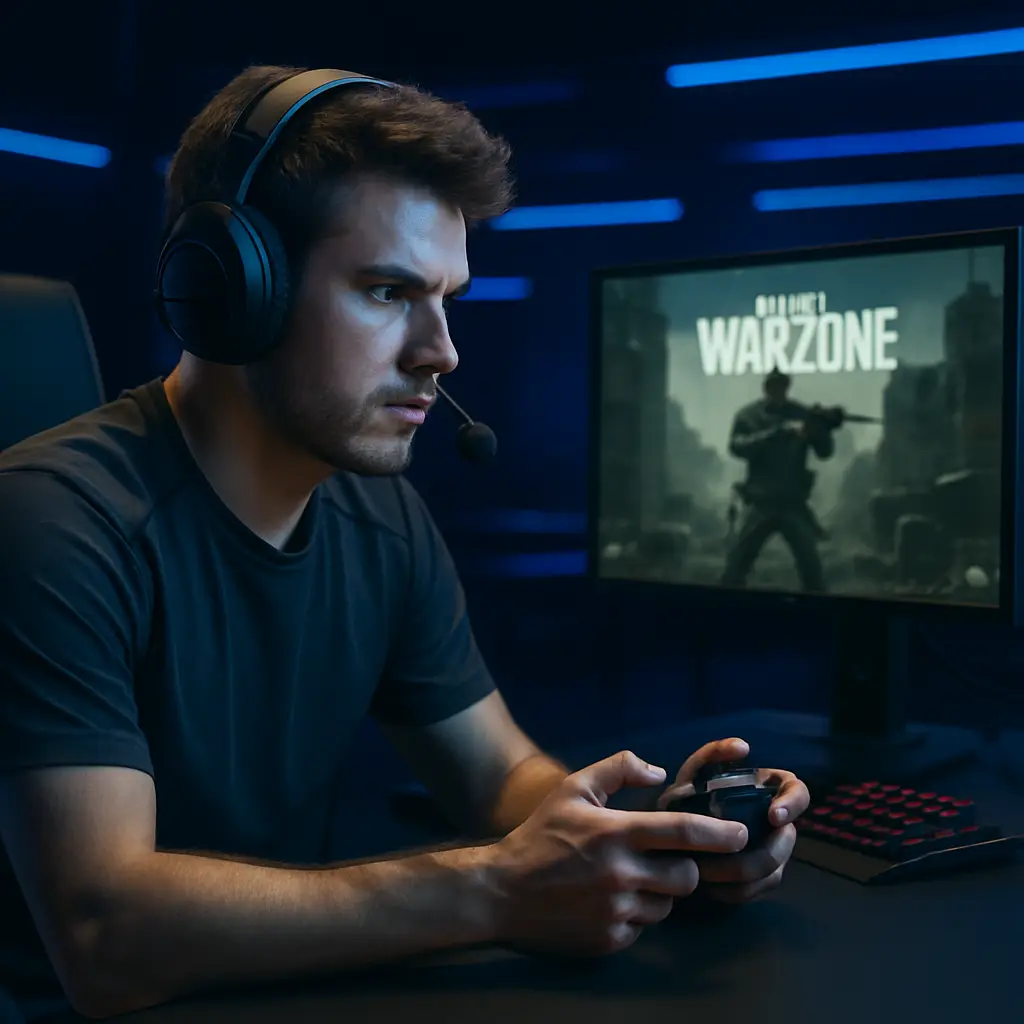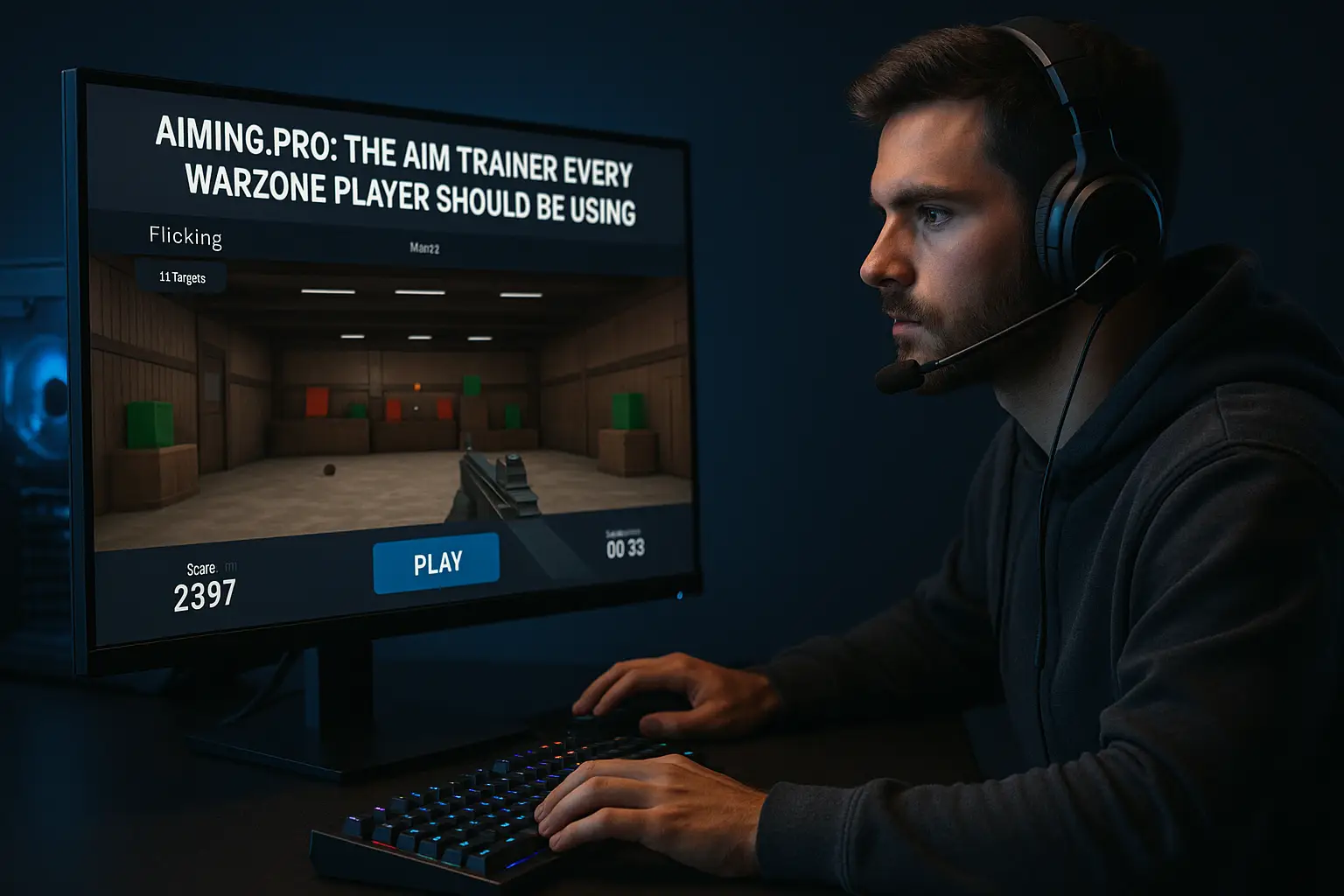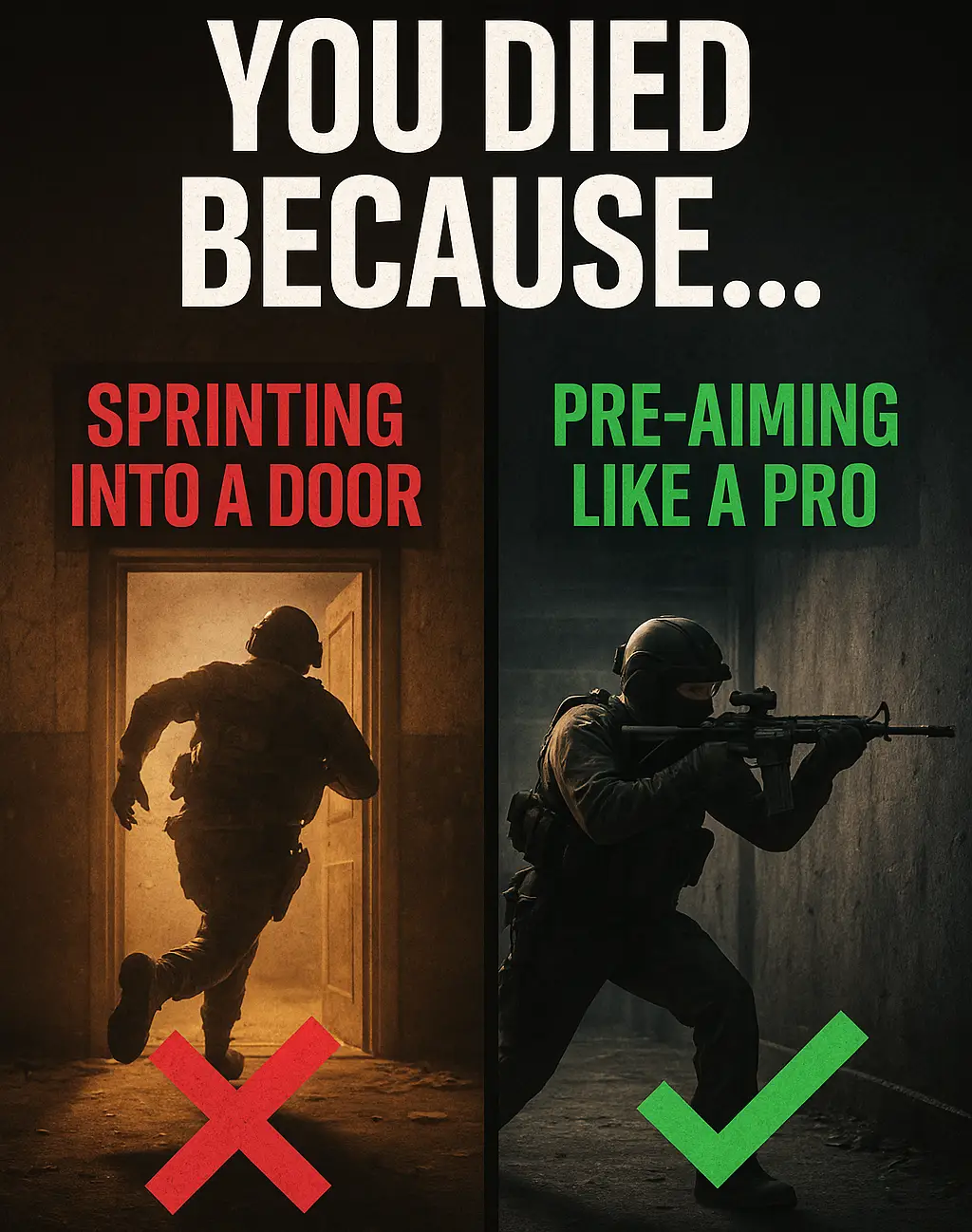
5 Tips to Master the Warzone COD Tactical Layout
Why Every Pro Player Uses the Tactical Layout in Warzone COD What Is the Tactical Layout and How Does It
Many players jump into FPS games, thinking they’re all about quick reflexes and nonstop shooting. However, I’ve learned that success in these games depends just as much on planning and awareness. The importance of strategy in FPS games goes far beyond pulling the trigger—positioning, map knowledge, and timing all play critical roles. In this article, I’ll share how incorporating thoughtful tactics has elevated my gameplay and turned chaotic matches into calculated victories.
Playing FPS games makes it easy to get caught up in the action. Many players focus on quick reflexes and rapid shooting. However, I have learned that a well-thought-out strategy improves performance and boosts the overall gameplay experience. A good plan allows players to make wise decisions under pressure and coordinate with teammates effectively.
The strategy offers more predictability and structure in a game known for its fast-paced and unpredictable events. I have experienced firsthand how careful planning can turn the tides of a match. By studying the map and knowing the enemy’s tendencies, you can create plans that keep you one step ahead in every round.
A strong foundation of strategic thinking and planning is at the core of any sustainable competitive play. I have identified several elements that contribute to strategic success. Each component influences how you approach the game’s challenges.
These strategic elements form a framework that assists in approaching even the most intense action with careful thought and planning. Understanding these ideas encourages players to look beyond rapid reflex actions and prepare for a more rounded and thoughtful play.
Shifting your focus from reflexes to strategy may seem challenging at first. I remember the early days when I was all about fast-paced shooting. Over time, I realized that success depended on planning. I began incorporating a strategic mindset into my game, and the improvements were noticeable.
To start developing a strong sense of strategy, consider these steps that have helped me along the way:
These steps have helped me build a game plan that relies on foresight rather than rapid responses. Practice helps develop a natural strategic instinct that can make all the difference in competitive play.
Every strategy comes with its own set of challenges. As someone who has spent many hours refining my approach, I have encountered several common pitfalls in FPS strategy that are worth discussing. Recognizing these can help you avoid setbacks in your gameplay.
Often, while in the heat of battle, I have noticed that focusing too much on a single element can cause you to miss important cues. Taking a moment to step back mentally and scan the map’s layout can prevent many missteps during hectic engagements.
In my early experiments with FPS games, I made daily impulsive decisions. Rushing into unfamiliar territory without a plan usually results in quick disadvantages. Learning to pause and assess the situation helps me make more effective moves.
Many players rely on their shooting accuracy alone, neglecting broader tactical considerations. Success in FPS games often lies in balancing personal skill and strategic support. Focusing on both leads to better overall results.
Resisting tactics changes can become a recurring problem. I have found that regularly updating your approach based on what is happening in the match makes your gameplay less predictable and more resilient against well-prepared adversaries.
This section reminds me that challenges are part of growth. Recognizing and addressing common pitfalls helps refine your overall strategy.
Once you feel comfortable with a basic strategic mindset, it is worthwhile to explore advanced tactics. These techniques require more practice and a deeper understanding of the game environment. I have benefited from integrating these methods into my play style.
Advanced strategy isn’t about learning secret formulas. Instead, it involves refining the basics and learning how minor adjustments can produce significant improvements. Some of my adopted methods include focusing on situational adaptation and refined team communication.
Mastering Positional Play: Positioning is the cornerstone of advanced strategy. By securing advantageous positions on the map, I have controlled the flow of a match. This technique involves not only taking cover but also planning routes of retreat and attack.
Why This Tactic Helps: It allows you to control sightlines and forces enemies to approach on your terms.
Using Decoys and Feints: An effective strategy sometimes means misleading your opponents. I often use decoys and feints to draw the enemy into traps or force them to reveal their positions. When done correctly, this creates openings for counter-attacks.
Why This Tactic Helps: It disrupts enemy coordination and creates confusion during critical fights.
Step-Up Communication Tactics: Clear and concise communication is essential when playing in teams. I have learned to use specific callouts and coordinate maneuvers for maximum effect. Sharing even split-second information can change the outcome of a game.
Why This Tactic Helps: It ensures that every team member is aware of the changing dynamics on the battlefield.
These advanced tactics require continual learning and adaptation. With time, integrating them into your gameplay can significantly improve your competitive edge in FPS games.
For those who are just starting, focusing on core strategic concepts can set a solid foundation for future growth. My early experiences taught me that those with the fastest trigger finger do not always win the battle. Instead, thinking about how you play can lead to more consistent success.

Here are some essential ideas that I recommend every beginner consider:
These core concepts are a valuable starting point for fostering a strategic mindset. With practice, they become second nature and improve your overall gameplay experience.
I have encountered several common questions regarding strategy in FPS games. Addressing these queries can provide clarity and practical advice for players looking to improve their approach.
Question: Can a solid strategy compensate for a lack of shooting skills?
Answer: In my experience, strategy and reflexes work together. While a strong strategic plan can help cover weaknesses in aiming, refining shooting skills remains essential to succeed in gaming environments.
Question: How can I start learning advanced tactics?
Answer: Begin by mastering the basics. I recommend studying game replays and how experienced players position themselves and manage resources. Gradually integrate advanced techniques as you gain confidence.
Question: What is the best way to integrate team communication into a strategic plan?
Answer: Identify clear callouts and roles for every team member. In my play, regular communication ensures that every player understands the plan and can adjust their actions when needed.
Beyond the fast-paced action of shooting, strategy remains a vital component that defines success in FPS games. I have experienced how simple adjustments in planning and positioning can lead to improved performance. By focusing on map knowledge, controlled tactics, and coordinated teamplay, players can create a more engaging and balanced gaming experience.
Building a strategic mindset is an evolving process that requires reflection, adaptation, and continuous learning. The journey from impulsive actions to thoughtful planning has been worth it. I encourage every serious FPS player to invest time honing their strategic skills. Kick things off your journey of strategic mastery today. The skills you develop now can drastically change your approach, making each match a more rewarding challenge filled with thoughtful decisions and tactical finesse.
Building on the core ideas presented above, it is essential to recognize that strategy in FPS games is an all-in-one process that connects planning with in-game action. Every component of a match requires careful thought. For example, when you take time to dig into the layout of each level, you begin to spot hidden opportunities. This method is not just about making the most of quick reflexes. It is about creating a game plan that works under pressure.
Successful players jump into battlegrounds with both precision and creativity. They know that a game is more than the sum of its parts. The ability to assess situations and adjust tactics using decoys or manage resources boosts overall gameplay effectiveness. Taking time to track down patterns in enemy behavior and to get a sense of how each round unfolds can completely change the dynamics of a match.
Pulling back the curtain on your strategies allows you room to explore new approaches. Before a match, you might sketch out different scenarios and review past outcomes to learn which tactics worked best. It is essential to ask questions and check in with teammates frequently. Staying sharp and looking for subtle cues can help you anticipate enemy moves and smoothly switch things up as needed.
One practical approach is mixing traditional methods with the next-level cool maneuvers you design yourself. When you see an unexpected opportunity, don’t hesitate to act on it. Instead of sticking with one formula, try to blend established tactics with innovative ideas, using every tool at your disposal. Whether playing a casual match or a competitive tournament, developing your strategic edge will be filled with learning moments that take your skills up a notch.
Finally, remember that every match is a chance to fine-tune your approach. Review your gameplay, note every decision, and look for ways to switch things up. This combined strategy builds confidence and makes the overall experience more engaging and rewarding. The process is iterative and requires perseverance, so win or lose, keep experimenting and perfecting your style.
Thanks for taking the time to read The Importance Of Strategy In FPS Games: Not Just A Shooting Spree. If you liked it, read A Guide To Building The Ultimate FPS Gaming PC Setup At Home.
Ask Questions: If you have any questions, leave them in the comments below.
Happy Gaming!

Why Every Pro Player Uses the Tactical Layout in Warzone COD What Is the Tactical Layout and How Does It

Best Aim Trainer for Warzone (Aiming.pro): Why Every Player Should Be Using It If you’re looking for the Best Aim

Warzone Sprint-to-Fire Delay Explained (Top 5 Secrets to Win More Fights in 2025) Field Brief: Understanding Warzone Sprint-to-Fire Delay “The